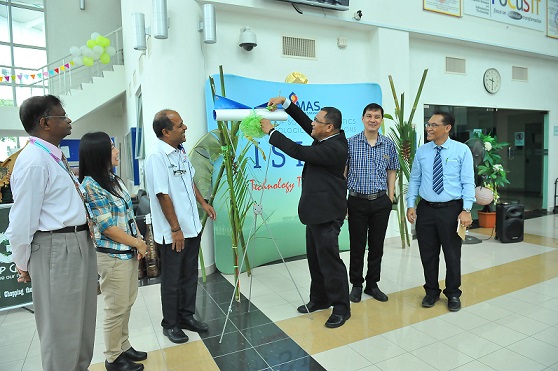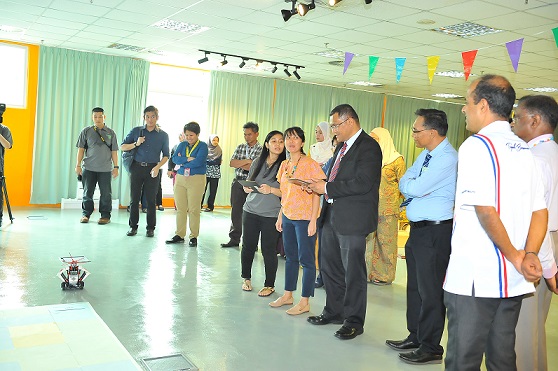Events Calendar
To Thursday 27 September 2018


Kota Samarahan, 26th September 2018 - The Institute of Social Informatics and Technological Innovations (ISITI) at Universiti Malaysia Sarawak (UNIMAS) hosted an open day, which ran starting from today until tomorrow from 9 a.m. to 5 p.m.
This two-day event served as a platform to introduce not only the diverse and innovative works of research that the Institute has taken on but also the various university-community engagement projects that have been initiated over the years to members of the public.
The event, which was officiated by Deputy Vice Chancellor (Research and Innovation), Professor Dr Wan Hashim bin Wan Ibrahim, saw an attendance of more than 400 visitors.
Members of the public were given the opportunity to learn about the rich traditional knowledge of the different indigenous communities in Malaysia, such as Oroo, the traditional language of the Penans in Sarawak, as well as the Semai and Temiar languages of the Orang Asli.
Apart from that, they had some hands-on experience with mobile technologies and explored how games can be used for STEM subjects. Another unique feature of the two-day event was that participants were also given the chance to experiment problem solving using Theory of Inventive Problem Solving (TRIZ), which is recognized as a powerful method for innovation.
ISITI was established in 2011, following the success of its flagship bridging the digital divide pilot project, eBario. A key focus of ISITI is to bridge the technology-people’s gap; in particular, encompassing technological innovations for indigenous communities.
ISITI projects are carried out within Malaysia with a very large and diverse indigenous remote population. The institute brings together more than 30 researchers from different faculties and centres in UNIMAS, from the social sciences to ICTs and engineering.
The approach taken in implementing the projects in remote areas requires much effort in community engagement and building relations, in addition to grappling with challenges of deploying technologies in difficult remote terrains.
ISITI has 7 living labs and 42 associated labs across 11 states in Malaysia and is recognized as a leader in ICT 4 Development and Rural Transformation; and is acclaimed internationally for its programmes on Innovation and Knowledge Management.

